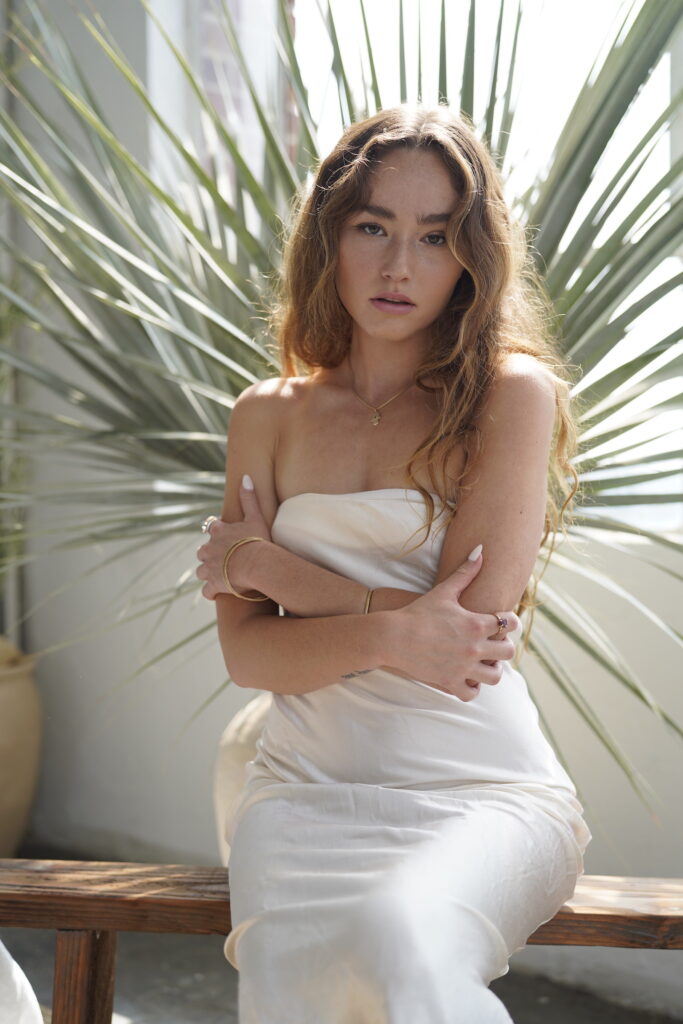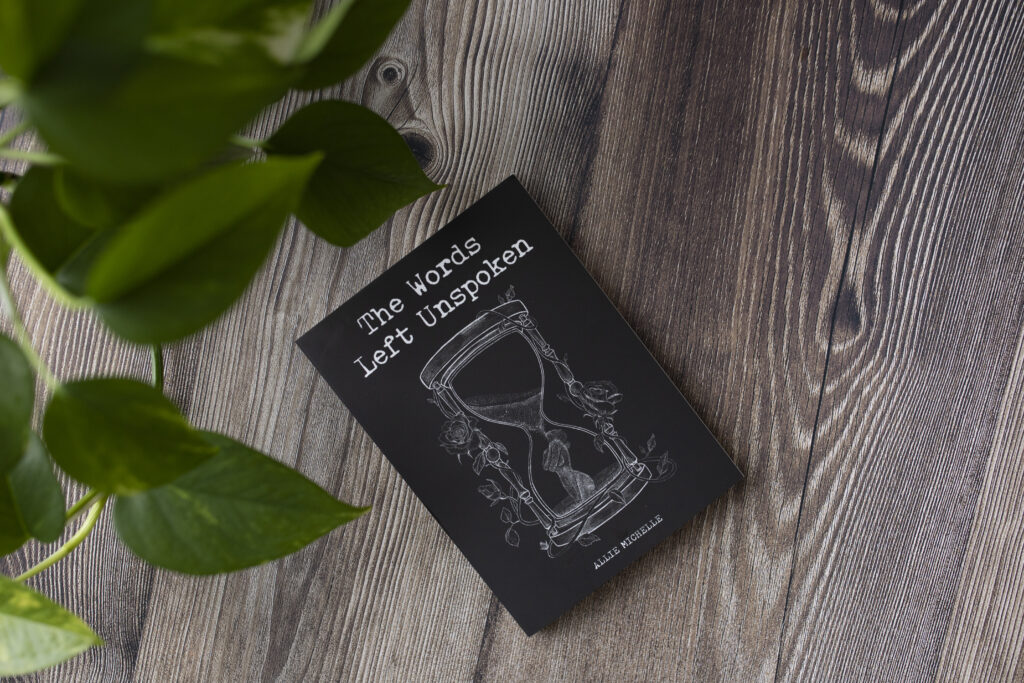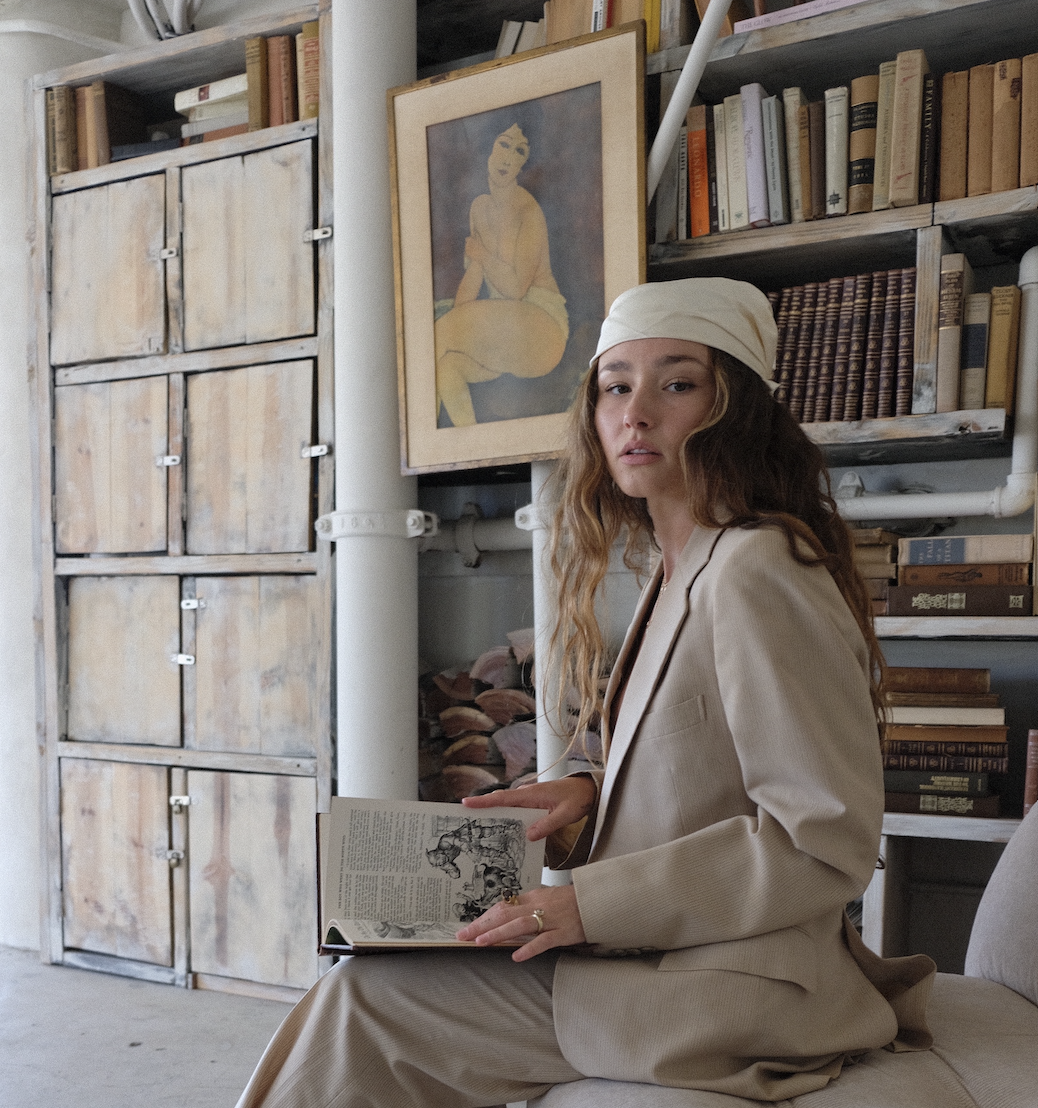7 Questions with The Words Left Unspoken Author Allie Michelle
Beloved poet Allie Michelle recently published her third and most vulnerable poetry collection yet, The Words Left Unspoken. Within it, she reflects on leaving a toxic relationship, confronting emotional pain, and navigating self-love. As its title suggests, the central and most prevailing theme is finally putting unspoken truths into words, with the collection serving as a testament to Allie Michelle finding her voice. We talked with Allie about how she developed her manuscript, the role that poetry has played in her emotional journey, and the topics she’ll always return to as a writer.

Kara Lewis (KL): This book is dedicated to “the ones that were silenced.” How does the act of pushing back against silencing inform your poetry?
Allie Michelle (AM): This book is a reclamation. I believe poetry puts words to the things that are the most difficult to say. For anyone who has ever watered down their truth or felt unable to use their voice, my hope is that this collection acts as compassionate encouragement. A huge theme of this book is healing from trauma, and that informs a lot of my poetry. Being able to turn my suffering into art that people can relate to or find relief in is my compass as a writer.
KL: This collection incorporates many visual risks with form, as well as illustrations paired with each poem. How does approaching poetry visually affect your writing process?
AM: You know, at the time I didn’t see it as a risk. I saw it as the truth of my experience. I see now that this book is far bolder than my other two collections, whether lyrically or visually. It may not be for everyone, but the ones who resonate with the work seem to do so on a deeper level. When I chose the artist, she was there and saw what happened in real time. She knew where those poems came from, and the journey I took back to myself, so I didn’t even have to give her much direction. She just knew.
KL: This collection is broken up into two sections—“breaking” and “becoming.” What do these sections represent for you, and why did you decide to organize the book this way?
AM: The back of the book explains it best: “I no longer avoid the point of breaking. I say to the world, ‘break my heart. Break it so wide open that all of eternity can fit in between the pieces.’” My pain broke me open, and from there I was able to become a more honest version of myself. But there is a secret third section called “unbecoming,” because our tendency after healing is to stitch ourselves back up and say, “Okay! I’ve got it . . . I’m okay now.’” In reality, we go through a thousand deaths and rebirths throughout our lives. I wanted to be honest about that. The minute you think you know is the minute it all unravels again, and so finding certainty in uncertainty is the most sane act we can do.

KL: Confronting emotions and being honest with yourself stand out as major themes of this collection. How does poetry help you do this?
AM: I spent most of my life in a dissociative state. So I really needed to work to be in my body and feel my emotions. It’s why I write about it so much—because it has been the hardest to learn: that I do not need to feel better, but just get better at feeling. Poetry is the bridge back to my heart. It is perhaps the one place I allow myself to feel all of it without judgment.
KL: Another major theme in this collection is walking away from a toxic relationship. What role can poetry play in this challenging process?
AM: Writing poetry helped me so much during that time. It helped me take responsibility for how I contributed to the demise of that relationship. It helped me get out of my story, it helped give me the courage to finally walk away, and to be patient in the years of healing after. I think with a lot of the things our society deems as “too heavy,” whether that be mental health or healing from abuse or toxicity, are empowering to write about, because poetry doesn’t ask you to be anything or sound a certain way. You don’t need to hide an inch of who you are or what you’ve been through. I hope everyone utilizes it as a therapeutic tool.
View this post on Instagram
KL: In addition to being a poet, you’re also the founder of a women’s wellness community called We Are Warriors. How do these two passions intersect?
AM: We Are Warriors is my heart. Every week, my sister and I do two-hour workshops with the girls. Sometimes it’s on trauma and mental health, but a lot of times it’s very creative. We give them a ton of writing exercises and poetry prompts. The coolest part about it is that although Alexis and I are hosting the community, we are all growing and creating together. It is the intersection of everything I love: family, art, and healing.
KL: What’s next for you creatively?
AM: I finished my first fantasy novel, and am halfway through my second. It’s a whole new world for me, and this is a really fulfilling and challenging next step as a writer. The Words Left Unspoken feels like a completion, a collection of poems I will always be proud of, so it’s nice to let these poems hold their own for a while.
Order The Words Left Unspoken here.




